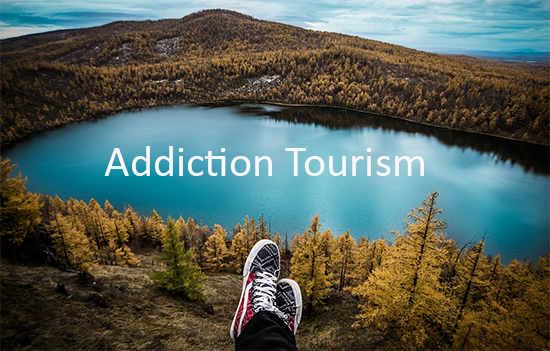
Usually we share useful information about renewing passports and getting expedited visas to different countries on our blog, but with this post we want to discuss an important problem that is likely to affect millions of families.
You’ve probably heard of medical tourism – taking a vacation to somewhere like Mexico or Canada to obtain a medical procedure for a fraction of what you’d pay in the United States. But you may not have heard of addiction tourism, which is becoming just as prevalent.
Addiction tourism is the label for trips taken to get rehab treatment for drug or alcohol addiction in another state or country. NPR recently did a story about addiction tourism in South Florida. Addiction tourism may sound like a good idea, but there are deep and widespread problems with the system.
Due to the current opioid epidemic, it’s estimated that about two and a half million Americans are currently addicted to opioids, which include prescription pain medications and heroin. South Florida has been advertising itself as a mecca for getting clean. Ads call for people from across the country to visit the relaxing beaches, enjoy the warm weather, and get top-quality treatment at a rehab spa. And people have been going to South Florida in droves — 75% of the rehab patients in the area come from out of state.
But many of those people are getting only partial or inadequate treatment. Disreputable treatment centers are taking as much as they can from their patients’ insurance companies, then they’re kicking patients out on the street, not even bothering to help them get home.
The result has been over 1,000 overdose deaths in South Florida last year alone. Meanwhile, South Florida rehab centers have faced charges of fraud, money laundering, sex trafficking, and more. The county has created a task force to try to address the problem, but people are still dying of needless overdoses and becoming homeless on the streets of South Florida.
The NPR story focused on this one particular city, but similar problems are cropping up in other states and around the world. Wherever there is an opportunity to take advantage of vulnerable people, it’s happening.
So what can you do?
If you or someone you love is faced with a serious addiction, look for local resources before racing across state lines or to other countries. If you do decide to travel somewhere for addiction treatment, make sure to do your homework first:
- Check licenses and research any current lawsuits or infractions.
- Read the contract the rehab facility provides you with carefully, and don’t sign anything that you’re not comfortable with.
- Talk to your insurance provider to find rehab centers that are recommended and covered by your policy.
If you don’t have insurance (and even if you do), look for helpful information from trusted resources like the National Institute on Drug Abuse. Above all, stay safe!

